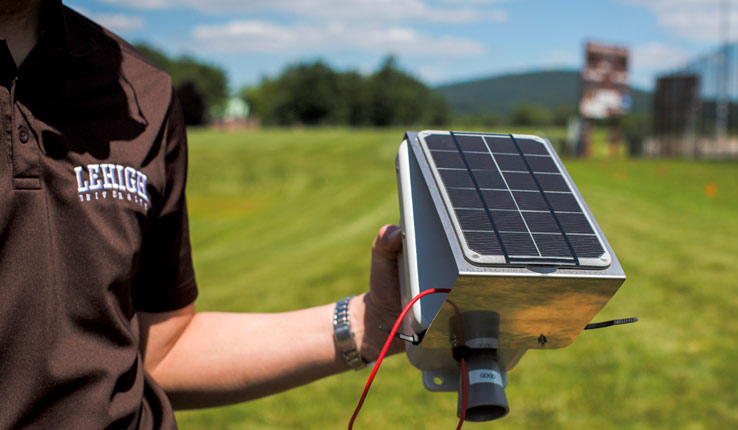A group of Lehigh undergraduate students is working with Ethan Yang, assistant professor of civil and environmental engineering, on a stormwater mitigation project designed to help the campus achieve one of the goals outlined in Lehigh’s Sustainability Strategic Plan 2030: develop a Stormwater Management Plan (SMP) by the end of 2021 that identifies green infrastructure and low-impact development (LID) projects, and provides guidelines for the design team to help mitigate stormwater runoff impacts and treat rainwater as a resource rather than as a waste product.
The students and Yang will work toward upgrading the existing green infrastructure on campus, such as several water retention basins designed to collect rainwater and delay its release into the city’s drainage system. Their first project aims to achieve a better understanding of the effectiveness of the water retention basin on Lehigh’s Goodman Campus. Step one is to install several “smart” sensors at the facility in order to obtain real-time measurements. This will have the additional benefit of testing the custom sensors that Yang and the students are building.


